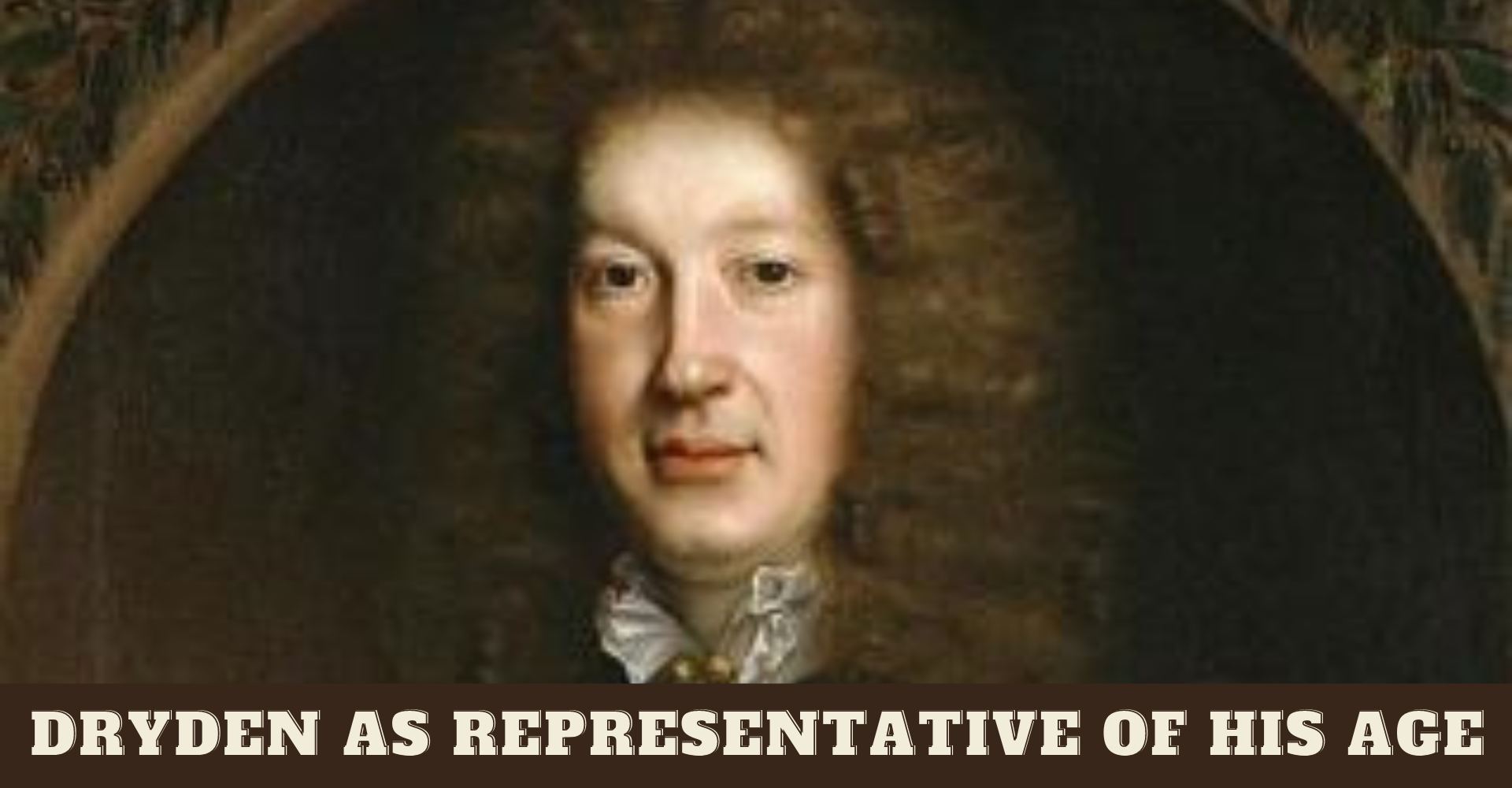Dryden as a Representative of His Age :
The first thing in Dryden’s poetry that strikes us in the representative character of his work. No one in the gamut of English Literature is more representative of his age than Dryden. His work contains a faithful representative of the whole literary movement for the later half of the seventeenth century. As E.E. Keller has observed. “Above all, he has a representative character. This is a peculiar character not always belonging to the greatest men. Milton, for example, though the highest name in his age, does not represent that age; and many other lofty intellects, though in one epoch are of another. But Dryden has his character to a degree not equalled by his successor ‘Pope’ himself.” His representative character in relation to the men of his time is still more remarkable. He was often seen in will’s Coffee-house surrounded by numerous wits. The great diarist of the time, Samuel Pepys, craved for the friendship of Dryden. He was always a domineering personality in conversation. He talked, and talked endlessly, on the political, social and the intellectual problems of the age.
The Nature of Dryden’s Satiric Genius :
It is exactly at this point that Dryden has set out as Ben Johnson would say, to whip the ragged follies of the time it is also here that Dryden’s ironic vision is born as a corrective to the fellies of the age. But Dryden’s satirical outbursts are not those of Ben Johnson, Pope or Byron. There is something Chaucerian in its character. Temperamentally, Dryden is a king of Chaucer. This also goes to justify Dryden’s passion for Chaucer, and the consequent revival of Chaucerian tradition. It is touched, as Dryden insisted that all good satire should be touched, with concession and even with sympathy. Scott tells us, “While Dryden seized, and dwelt upon, and aggravated, all the evil features of his subject, he carefully retained just as much its laudable traits as preserved him from the charge of want of candour.” The political satires of Dryden have produced a sensation in England. He never took sides. As Sir Walter Raleigh has observed, “He is of the centre, his party is the party of Aristophanes and of Rabelais. His best work is inspired by the sanity that inhabits at the heart of things. He lived in a turbulent age, and he was a fighter. But all extremists have their natural enemies. His weapons can be used on occasion by either side. He hated wrong-headed theorists and fanatics, who commonly impose their alliance, a heavy burden, on the reforming party in the state. He also hated all contented and self-sufficient dullards, who for the most part have to be supported, a grievous weight, by the part that stands for the established order. He makes war on both, with laugh that flashes and cuts.”
Dryden and the Religious Poems :
The didactic note in Dryden’s poetry is a direct off-shoot of the theological controversy of the seventeenth century. The two famous didactic poems of Dryden are Religio Laici and The Hind and the Panther. The first poem which is a didactics verse-thesis in closely-laced couplets, gives a “Ayman’s Faith an eloquently clear and sustained, if not too cogent argument against Deism, and crowning ceremony that had a spirited support of the Protestant Church of England, especially against the Catholics and the Presbyterians, The second, The Hind and the Panther, written after the accession of James, is an allegorical defence of the Roman Catholic Church as against the Church of England. A milk-white hind “immortal and unchanged” is the symbol of the Roman Church, pursued by the panther, “fairest creature of the spotted kind” (Church of England).
Dryden and His Lyrics :
We come across in Dryden’s plays some fin lyrics, and the other experiments which he made. are his elegiac odes and odes on St. Cecilia. Nicoll comments: “Dryden, we must remember, had many ties of with the poets who had gone before him; and it is the presence in him of the Elizabethan characteristics which makes him stand higher than this contemporaries. In the measures of his couplets, he has not forgotten the delicate rhythms of previous singers, so that his lyrics and his odes have melodies in them which for the most part are lacking in the similar productions of the contemporaries. His pure lyrics, his songs, may be mostly love poems, but they have a note that appears to be a combination of Elizabethan and of Restoration feelings.” Dryden stands out as one of the glories of English poetry.
PLEASE HELP ME TO REACH 1000 SUBSCRIBER ON MY COOKING YT CHANNEL (CLICK HERE)











